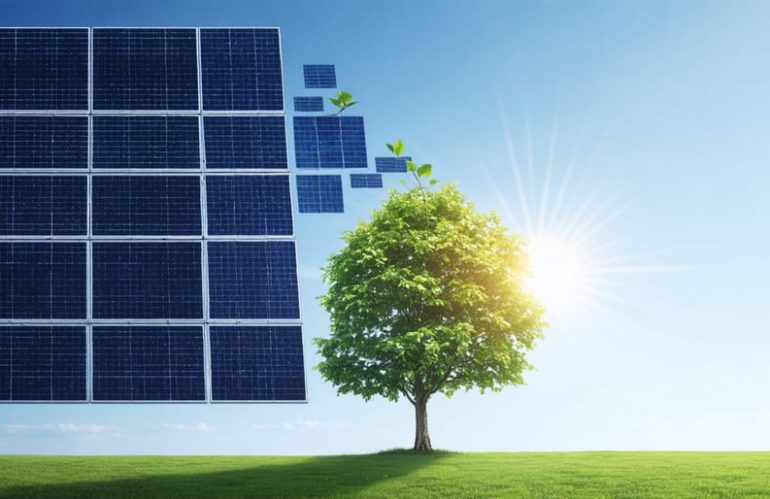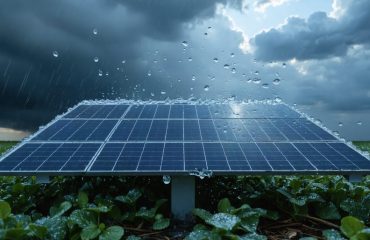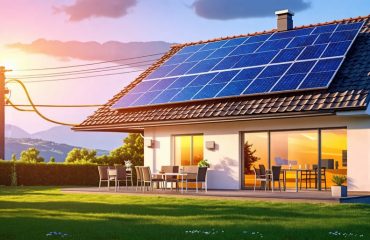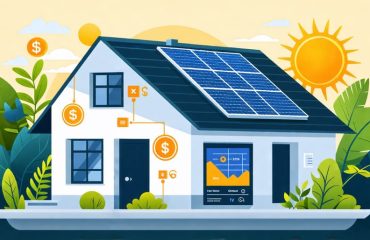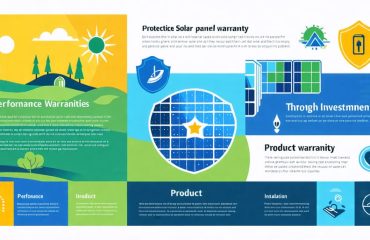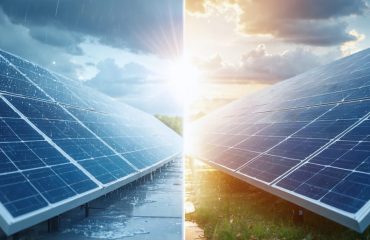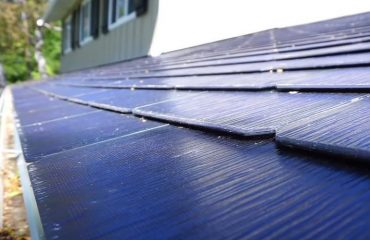Solar panels are built to last, but just how long can you expect them to keep powering your home? The average lifespan of a solar panel is 25-30 years, meaning your investment in clean energy will pay dividends for decades. While factors like climate, maintenance, and manufacturing quality can impact longevity, most panels are engineered to withstand the elements and retain 80%+ of their original power output after 25 years. So when you go solar, you’re not just saving money on electricity bills – you’re making a lasting commitment to sustainable living that will benefit both your wallet and the planet for years to come.
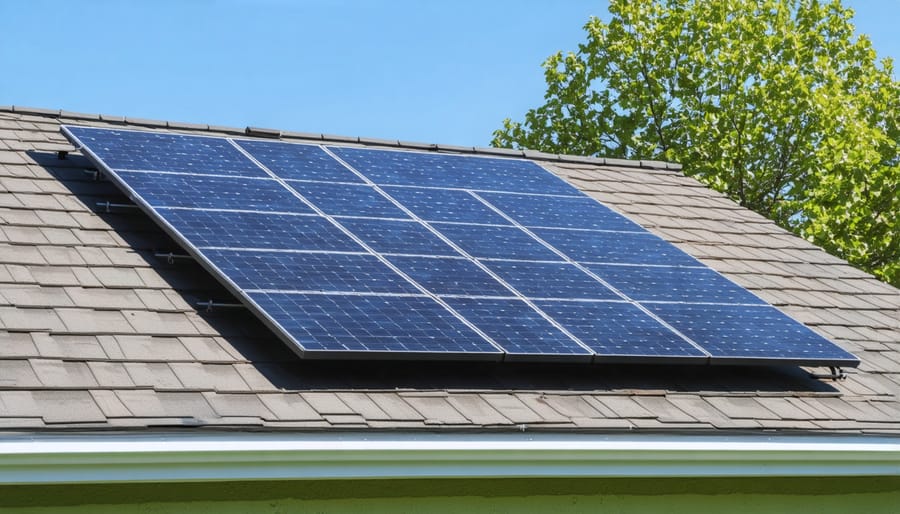
Typical Solar Panel Lifespan
Factors Impacting Lifespan
Several key factors can impact the lifespan of solar panels, and understanding these variables can help you make informed decisions when investing in solar energy. One of the most significant factors is the type of solar panel you choose. Monocrystalline panels, known for their high efficiency and sleek appearance, typically last longer than polycrystalline panels. However, both types can provide reliable performance for decades with proper care.
Climate also plays a role in solar panel longevity. Panels exposed to extreme temperatures, both hot and cold, may experience more stress over time. Additionally, panels in areas prone to severe weather events, such as hail or heavy snow, may face a higher risk of physical damage. For insights on how panels withstand adverse weather, you might find it useful to learn about whether your solar panels can survive a brutal hailstorm. Most high-quality panels are designed to withstand these conditions and continue functioning effectively.
Regular maintenance is another crucial aspect of ensuring your solar panels last as long as possible. While solar panels require minimal upkeep, keeping them clean and free from debris can help maintain optimal performance. Dust, dirt, and even bird droppings can accumulate on the panel surface, reducing their ability to absorb sunlight efficiently. Periodic cleaning, either by yourself or through professional services, can help mitigate this issue.
It’s important to note that even with these factors in mind, solar panels are generally built to be highly durable and long-lasting. Many manufacturers offer warranties of 25 years or more, providing peace of mind and protection for your investment. By choosing reputable brands, installing panels in suitable locations, and engaging in simple maintenance practices, you can maximize the lifespan of your solar panels and enjoy the benefits of clean, renewable energy for years to come.
Degradation Rate
When discussing solar panel lifespan, it’s important to understand the concept of degradation rate. This refers to the gradual decrease in efficiency that solar panels experience over time due to normal wear and tear. Typically, high-quality solar panels have a degradation rate of about 0.5% per year. This means that after 20 years, a panel will still operate at around 90% of its original capacity.
While solar panels are often guaranteed to last 25-30 years, this doesn’t mean they stop working after this period. In fact, many solar panels continue to produce energy well beyond their warranted lifespan. Even after 25 years, a solar panel with a 0.5% annual degradation rate will still be operating at about 88% of its original capacity. This means that even decades after installation, solar panels can still generate a significant amount of clean, renewable energy for your home.
It’s worth noting that advancements in solar technology have led to more durable and efficient panels, with some manufacturers now offering degradation rates as low as 0.3% per year. This means that the lifespan and long-term performance of solar panels are continually improving, making them an even more attractive investment for homeowners looking to reduce their energy bills and carbon footprint over the long haul.
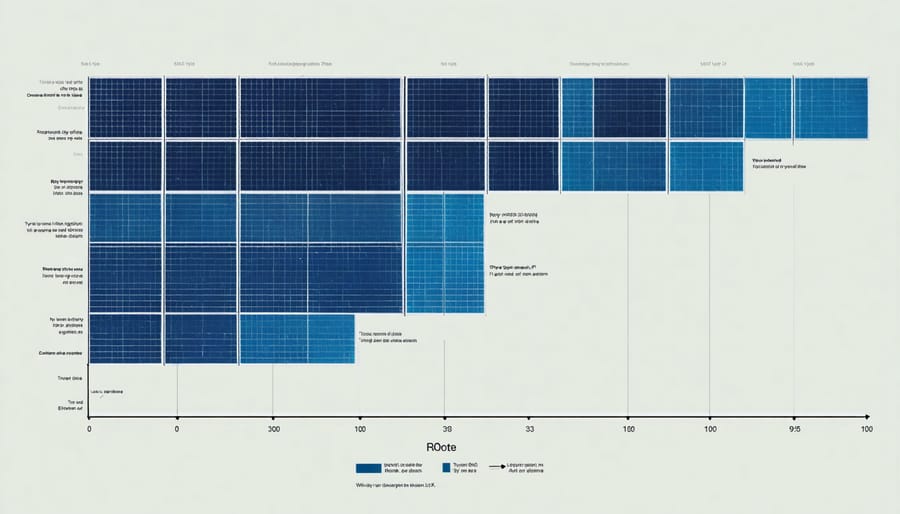
Debunking Solar Panel Lifespan Myths
Myth: Panels Don’t Last Long
Despite what some may believe, solar panels are built to last. The average lifespan of a solar panel is 25 to 30 years, with many systems continuing to generate electricity well beyond this range. High-quality panels from reputable manufacturers often come with warranties guaranteeing at least 80% of their rated power output for 25 years or more.
The robust design and durable materials used in solar panels enable them to withstand the elements, including harsh weather conditions, temperature fluctuations, and UV exposure. Rigorous testing ensures that panels can endure the test of time, providing homeowners with a reliable, long-term investment in clean energy.
While the efficiency of solar panels may gradually decline over time, this decrease is minimal and does not significantly impact the overall performance of the system. With proper maintenance, such as regular cleaning and timely repairs if needed, solar panels can continue to generate substantial energy savings for decades, making them a worthwhile and lasting investment for environmentally-conscious homeowners looking to reduce their energy bills.
Myth: Panels Are Fragile
Despite their sleek appearance, solar panels are engineered to withstand the harshest environmental conditions. Before reaching the market, panels undergo rigorous durability testing to ensure they can handle extreme temperatures, heavy winds, hail, snow, and even impact from falling objects. Manufacturers simulate real-world conditions in controlled environments to verify the panels’ resilience. Tests include exposing panels to high-speed winds, heavy snow loads, and repeated cycles of extreme heat and cold. Additionally, panels are subjected to impact tests using golf ball-sized ice spheres shot at high velocities to mimic severe hail storms. Many panels are also tested for their ability to withstand salt spray and ammonia, making them suitable for coastal and agricultural areas. These comprehensive assessments guarantee that solar panels are built to endure the elements and continue performing efficiently for decades. So, while they may appear delicate, solar panels are actually incredibly robust and designed to provide reliable, clean energy in even the most challenging environments.
Maximizing Solar Panel Lifespan
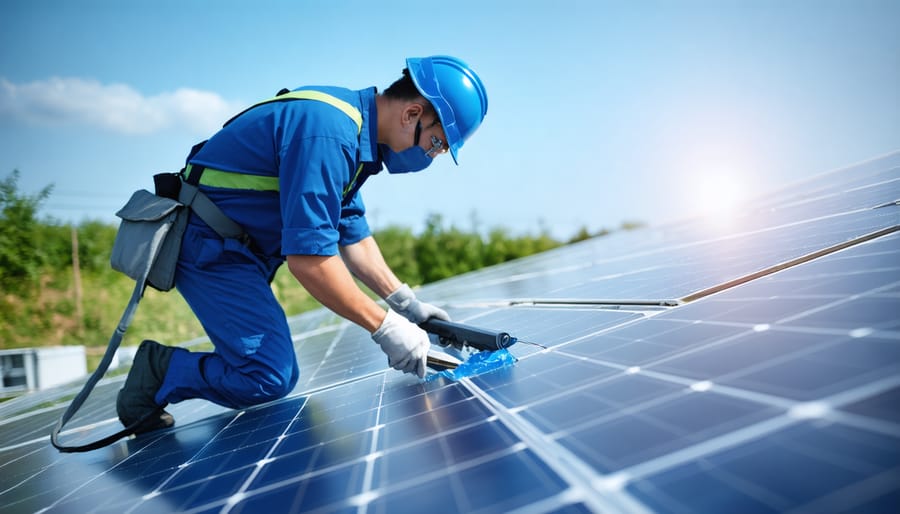
Importance of Maintenance
Regular maintenance is crucial for optimizing the performance and extending the lifespan of solar panels. Regular cleaning helps remove dirt, dust, and debris that can accumulate on the panels, reducing their efficiency in capturing sunlight. Scheduling professional inspections every few years allows for early detection and repair of any issues, such as loose connections or damaged components. These proactive measures not only ensure that your solar panels are operating at peak efficiency but also help prevent more serious problems that could shorten their lifespan. By prioritizing maintenance, homeowners can maximize the long-term benefits of their solar investment, including lower energy bills and a reduced carbon footprint. So, while solar panels are designed to be durable and low-maintenance, a little care goes a long way in ensuring they continue to provide reliable, clean energy for decades to come.
Warranty Considerations
Most solar panels come with warranties covering product defects and performance for 10-25 years. Product warranties typically cover manufacturing issues for 10-12 years, while performance warranties guarantee a certain power output level, usually around 80-90% of the original capacity, for 25-30 years. It’s important to understand the specific warranty terms offered by your chosen manufacturer.
To ensure warranty coverage remains valid, solar panels must be installed by licensed, qualified professionals following the manufacturer’s guidelines. Improper installation or unauthorized modifications can void the warranty. Regular maintenance, such as cleaning and inspections, may also be required to keep the warranty in good standing. By selecting a reputable installer and properly maintaining your solar panels, you can protect your investment and enjoy the benefits of clean energy for decades to come.
Conclusion
Solar panels are a reliable, long-lasting investment for those seeking to reduce their carbon footprint and energy bills. With an average lifespan of 25-30 years and the potential to function well beyond that with proper maintenance, solar panels offer a sustainable investment that pays off for decades. While factors like climate, installation, and quality can impact longevity, most manufacturers offer robust warranties to protect your investment. By understanding the expected lifespan and taking steps to maintain your panels, you can enjoy the many benefits of solar power for years to come.

